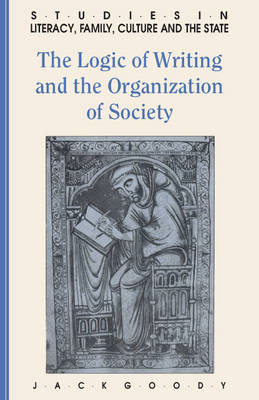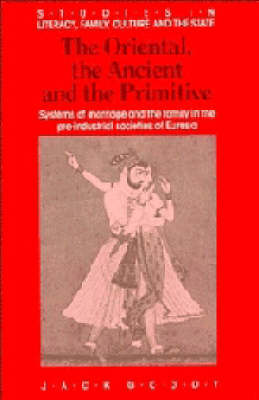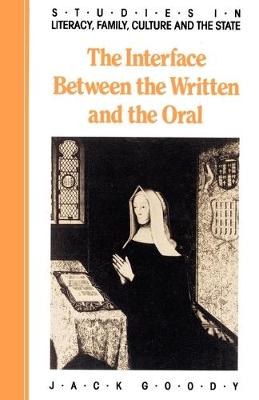Studies in Literacy, the Family, Culture and the State
3 total works
This book assesses the impact of writing on human societies, both in the Ancient Near East and in twentieth-century Africa, and highlights some general features of social systems that have been influenced by this major change in the mode of communication. Such features are central to any attempt at the theoretical definition of human society and such constituent phenomena as religious and legal systems, and in this study Professor Goody explores the role of a specific mechanism, the introduction of writing and the development of a written tradition, in the explanation of some important social differences and similarities. Goody argues that a shift of emphasis from productive to certain communicative processes is essential to account adequately for major changes in human societies. Whilst there have been previous descussions of the effect of literacy upon social organisation, no study has hitherto presented the general synthesis developed here.
In The Oriental, the Ancient and the Primitive one of the world's most foremost anthropologists looks in depth at kinship practice in Asia, and continues the comparative survey of pre-industrial family formation undertaken in The Development of Family and Marriage in Europe (1983) and elsewhere. Professor Goody's findings cause him to question many traditional assumptions about the 'primitive' east, and he suggests that, in contrast to pre-colonial Africa, kinship practice in Asia has much in common with that prevailing in parts of pre-industrial Europe. Goody examines the transmission of productive and other property in relation both to the prevailing political economy and to family and ideological structures, and then explores the distribution of mechanisms and strategies of management across cultures. He concludes that notions of western 'uniqueness' are often misplaced, and that much previous work on Asian kinship has been unwittingly distorted by the application of concepts and approaches derived from other, inappropriate, social formations, simple or post-industrial.
Whilst the fundamental significance of the spoken language for human interaction is widely acknowledged, that of writing is less well known, and in this wide-ranging series of essays Jack Goody examines in depth the complex and often confused relationship between oral and literate modes of communication. He considers the interface between the written and the oral in three cultures or societies with and without writing, and that within the linguistic life of an individual. Specific analyses of the sequence of historical change within writing systems, the historic impact of writing upon Eurasian cultures, and the interaction between distinct oral and literate cultures in West Africa, precede an extensive concluding examination of contemporary issues in the investigation, whether sociological or psychological, of literacy. A substantial corpus of anthropological, historical and linguistic evidence is produced in support of Goody's findings, which form a natural complement to his own recently published study of The Logic of Writing and the Organization of Society.


